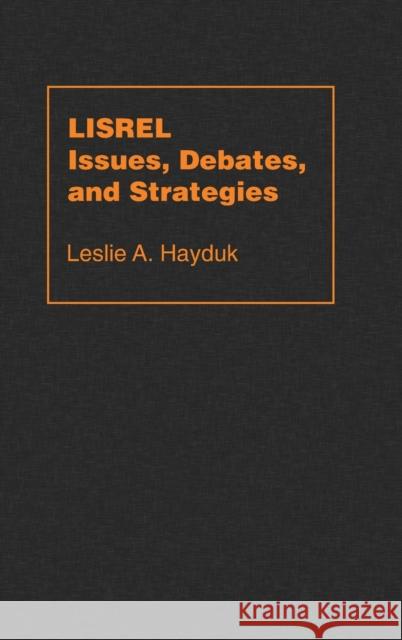Lisrel Issues, Debates and Strategies » książka
Lisrel Issues, Debates and Strategies
ISBN-13: 9780801853364 / Angielski / Twarda / 1996 / 280 str.
LISREL: Issues, Debates, and Strategies examines issues of concern to researchers already familiar with the basics of structural equation modeling. Building on his earlier work in Structural Equation Modeling in LISREL, Leslie Hayduk explains procedures that maximize researchers' control over the meanings of their concepts and integrates the modeling of single and multiple indicators. The constraints and deceptions of the factor model are used to highlight measurement issues and the debate over whether one should estimate a measurement model prior to estimating a structural model is reviewed, extended, and evaluated.For sociologists, political scientists, psychologists, and researchers in science, medicine, and education, LISREL offers a wealth of useful information: A loop-equivalent to the standard recursive model is presented as grounding an interpretation style that can be used to challenge any or all the effect estimates from recursive models. (Loop-equivalent provide an appealing alternative conceptualization of longitudinal processes.) Models with acceptable negative R2's are discussed and LAR2 is introduced as a more appropriate indication of error variance for variables touching reciprocal relationships or loops. The logic connecting partial correlations, tetrads, equivalent models, and LISREL is presented and recent advances in this area are reviewed. Phantom variables and a modeling trick combine to illustrate how stacked models based on differing sets of indicator variables can be used: to identify otherwise unidentified models, to control for unmeasured variables, and to integrate models based on diverse data sets. A more appropriate Monte-Carlo-test model is proposed and a brief review of the recent literature is provided.











